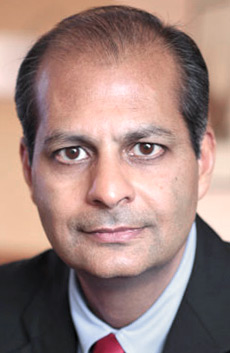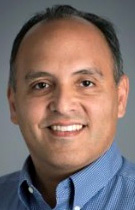

Cybersecurity |
Sponsored by |

|
 It's been nearly two months since the high profile BGP hijack attack against MyEtherwallet, where crypto thieves used BGP leaks to hijack MEW's name servers, which were on Amazon's Route53, and inserted their own fake name servers which directed victims to their own fake wallet site, thereby draining some people's wallets. It generated a lot of discussion at the time... What isn't fully appreciated is that attack has, in fact, changed the game somewhat... more
It's been nearly two months since the high profile BGP hijack attack against MyEtherwallet, where crypto thieves used BGP leaks to hijack MEW's name servers, which were on Amazon's Route53, and inserted their own fake name servers which directed victims to their own fake wallet site, thereby draining some people's wallets. It generated a lot of discussion at the time... What isn't fully appreciated is that attack has, in fact, changed the game somewhat... more
 The Google-run .app TLD was always destined to draw attention and scrutiny, from the moment it fetched a then-record ICANN auction price of $25 million. Since it reached General Availability in May it has gained more than 250,000 registrations making it one of the world's most successful TLDs. However perhaps more interesting was Google's choice to add the .app TLD and its widely used .google extension to the HTTP Strict Transport Security (HSTS) Top-Level Domain preload list, offering an unprecedented level of security for all domains under .google and .app. more
The Google-run .app TLD was always destined to draw attention and scrutiny, from the moment it fetched a then-record ICANN auction price of $25 million. Since it reached General Availability in May it has gained more than 250,000 registrations making it one of the world's most successful TLDs. However perhaps more interesting was Google's choice to add the .app TLD and its widely used .google extension to the HTTP Strict Transport Security (HSTS) Top-Level Domain preload list, offering an unprecedented level of security for all domains under .google and .app. more
DNS firewall market size is expected to grow from USD 90.5 million in 2018 to USD 169.7 million by 2023, at a Compound Annual Growth Rate (CAGR) of 13.4% according to a market research conducted by MarketsandMarkets. more
 Hi! My name is spamfighter. I investigate spam and phish in a post-GDPR dystopia. Recently, I invented Fire, to save you millions of €uros. One day, my Boss suggested I automate some of my processes. I, for one, welcome our Robot Overlords (and a happy boss), but I can be exacting about the tools I use. Perhaps not to the degree of the infamous Van Halen 'no brown M&M's' contractual clause but I have no patience for poorly-designed software, and truly dislike typing when... more
Hi! My name is spamfighter. I investigate spam and phish in a post-GDPR dystopia. Recently, I invented Fire, to save you millions of €uros. One day, my Boss suggested I automate some of my processes. I, for one, welcome our Robot Overlords (and a happy boss), but I can be exacting about the tools I use. Perhaps not to the degree of the infamous Van Halen 'no brown M&M's' contractual clause but I have no patience for poorly-designed software, and truly dislike typing when... more
 On 23 February, the U.S. Administration had the chutzpah to file a formal communication to the World Trade Organization (WTO) complaining about "measures adopted and under development by China relating to its cybersecurity law." However, it is the U.S. complaint that is most troubling. Here is why. The gist of the U.S. complaint is that China's newly promulgated directive on the use of VPN (Virtual Private Network) encrypted circuits from foreign nations runs afoul of... more
On 23 February, the U.S. Administration had the chutzpah to file a formal communication to the World Trade Organization (WTO) complaining about "measures adopted and under development by China relating to its cybersecurity law." However, it is the U.S. complaint that is most troubling. Here is why. The gist of the U.S. complaint is that China's newly promulgated directive on the use of VPN (Virtual Private Network) encrypted circuits from foreign nations runs afoul of... more
 Bruce Schneier is a famous cryptography expert and Orin Kerr a famous cyberlaw professor. Together they've published a law journal article on Encryption Workarounds. It's intended for lawyers so it's quite accessible to non-technical readers. The article starts with a summary of how encryption works, and then goes through six workarounds to get the text of an encrypted message. more
Bruce Schneier is a famous cryptography expert and Orin Kerr a famous cyberlaw professor. Together they've published a law journal article on Encryption Workarounds. It's intended for lawyers so it's quite accessible to non-technical readers. The article starts with a summary of how encryption works, and then goes through six workarounds to get the text of an encrypted message. more
 What if we created a rule that gave everyone - good or bad - the right to hide their license plate, where they live, who they are, and just go incognito? What if we made it a right to walk into any building in the world, and simply say "No, thank you" when the security guards asked for one's identification? The criminals would celebrate, and we'd all be utterly alarmed. We would immediately be afraid for our personal safety. more
What if we created a rule that gave everyone - good or bad - the right to hide their license plate, where they live, who they are, and just go incognito? What if we made it a right to walk into any building in the world, and simply say "No, thank you" when the security guards asked for one's identification? The criminals would celebrate, and we'd all be utterly alarmed. We would immediately be afraid for our personal safety. more
Leading Moscow-based anti-virus software provider Kaspersky Lab is planning to open a data center in Switzerland to address Western government concerns that Russia exploits its anti-virus software to spy on customers, according to a report from Reuters on Wednesday. more
 There's a lot of misunderstanding about blockchain. A recent study by HSBC, for example, found that 59 percent of customers around the world had never heard of it. Yet, while that alone is quite telling, it's probably more alarming to consider the fact that very same poll revealed that 80 percent of people who had hard of blockchain did not understand what it is. This level of confusion isn't confined to the general population either. more
There's a lot of misunderstanding about blockchain. A recent study by HSBC, for example, found that 59 percent of customers around the world had never heard of it. Yet, while that alone is quite telling, it's probably more alarming to consider the fact that very same poll revealed that 80 percent of people who had hard of blockchain did not understand what it is. This level of confusion isn't confined to the general population either. more
We are on the brink of the most serious threat to the open and public Internet for decades. ICANN, under pressure from domain name registrars and EU data protection authorities, has proposed an "interim" plan that will hide critical information in WHOIS. Security, threat intelligence, and anti-abuse professionals rely on WHOIS to track down bad guys and keep the Internet as safe and secure as possible. more
 Security for Internet-connected devices, the "Internet of Things" (IoT), is critically important. Now, more than ever, it is top of mind for device manufacturers, network operators, consumer advocates, lawmakers, and government regulators -- domestically and internationally. In the face of recent attacks, government authorities and consumer advocates have proposed legislation, frameworks, certifications, and labeling schemes. more
Security for Internet-connected devices, the "Internet of Things" (IoT), is critically important. Now, more than ever, it is top of mind for device manufacturers, network operators, consumer advocates, lawmakers, and government regulators -- domestically and internationally. In the face of recent attacks, government authorities and consumer advocates have proposed legislation, frameworks, certifications, and labeling schemes. more
 I've been prompted to write this brief opinion piece in response to a recent article posted on CircleID by Tony Rutkowski, where he characterises the IETF as a collection of "crypto zealots." He offers the view that the IETF is behaving irresponsibly in attempting to place as much of the Internet's protocols behind session level encryption as it possibly can. ... Has the IETF got it wrong? Is there a core of crypto zealots in the IETF that are pushing an extreme agenda about encryption? more
I've been prompted to write this brief opinion piece in response to a recent article posted on CircleID by Tony Rutkowski, where he characterises the IETF as a collection of "crypto zealots." He offers the view that the IETF is behaving irresponsibly in attempting to place as much of the Internet's protocols behind session level encryption as it possibly can. ... Has the IETF got it wrong? Is there a core of crypto zealots in the IETF that are pushing an extreme agenda about encryption? more
 Reflection amplification is a technique that allows cyber attackers to both magnify the amount of malicious traffic they can generate, and obfuscate the sources of that attack traffic. For the past five years, this combination has been irresistible to attackers, and for good reason. This simple capability, of turning small requests into larger, 'amplified' responses, changed the Distributed Denial of Service (DDoS) attack landscape dramatically. more
Reflection amplification is a technique that allows cyber attackers to both magnify the amount of malicious traffic they can generate, and obfuscate the sources of that attack traffic. For the past five years, this combination has been irresistible to attackers, and for good reason. This simple capability, of turning small requests into larger, 'amplified' responses, changed the Distributed Denial of Service (DDoS) attack landscape dramatically. more
Possibly the first documented native IPv6 DDoS attack reported today suggests a DNS dictionary attack which originated from around 1,900 different native IPv6 hosts, on more than 650 different networks. more
According to Akamai, the incident was the largest attack seen to date, "more than twice the size of the September 2016 attacks that announced the Mirai botnet and possibly the largest DDoS attack publicly disclosed." more